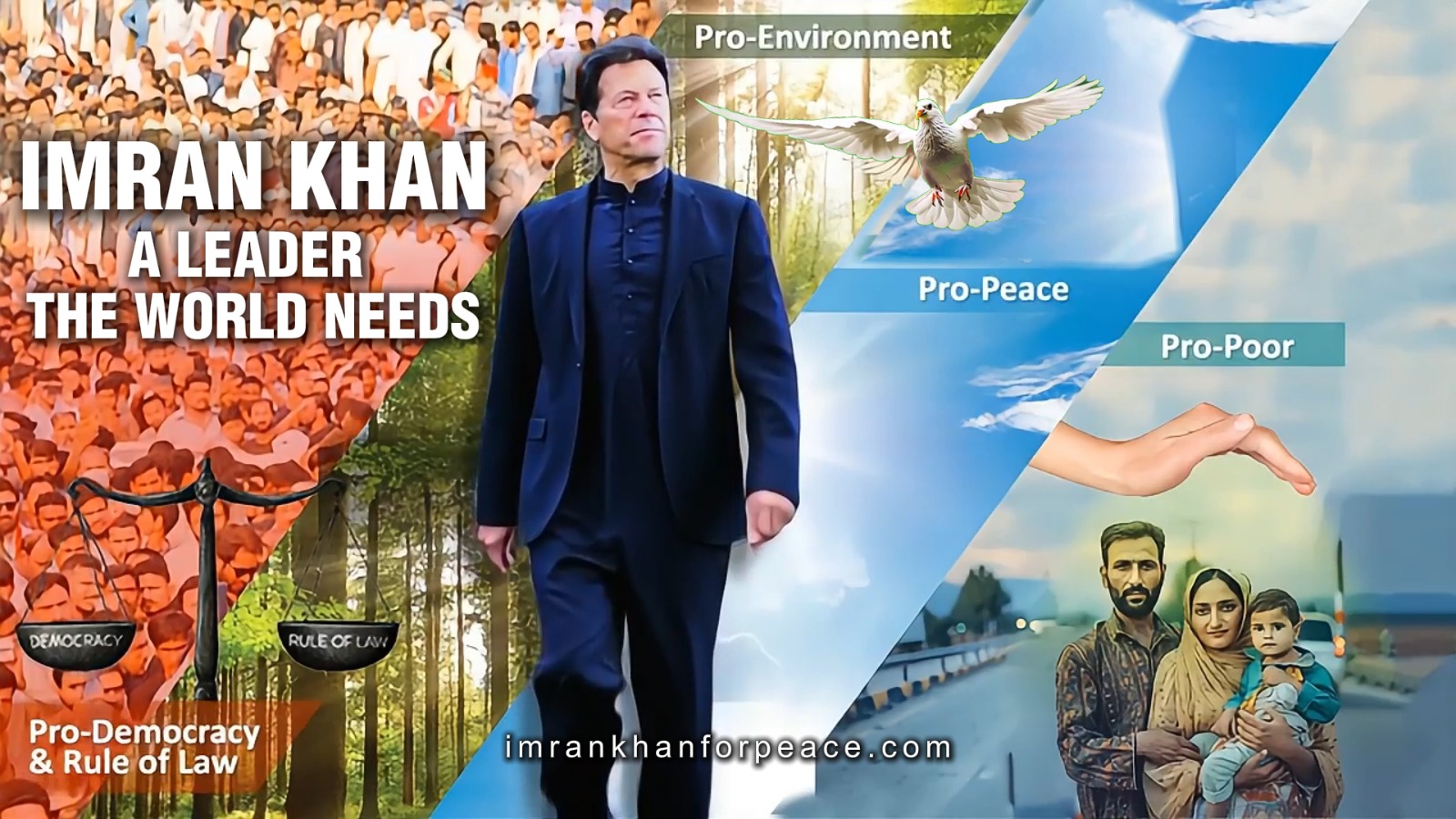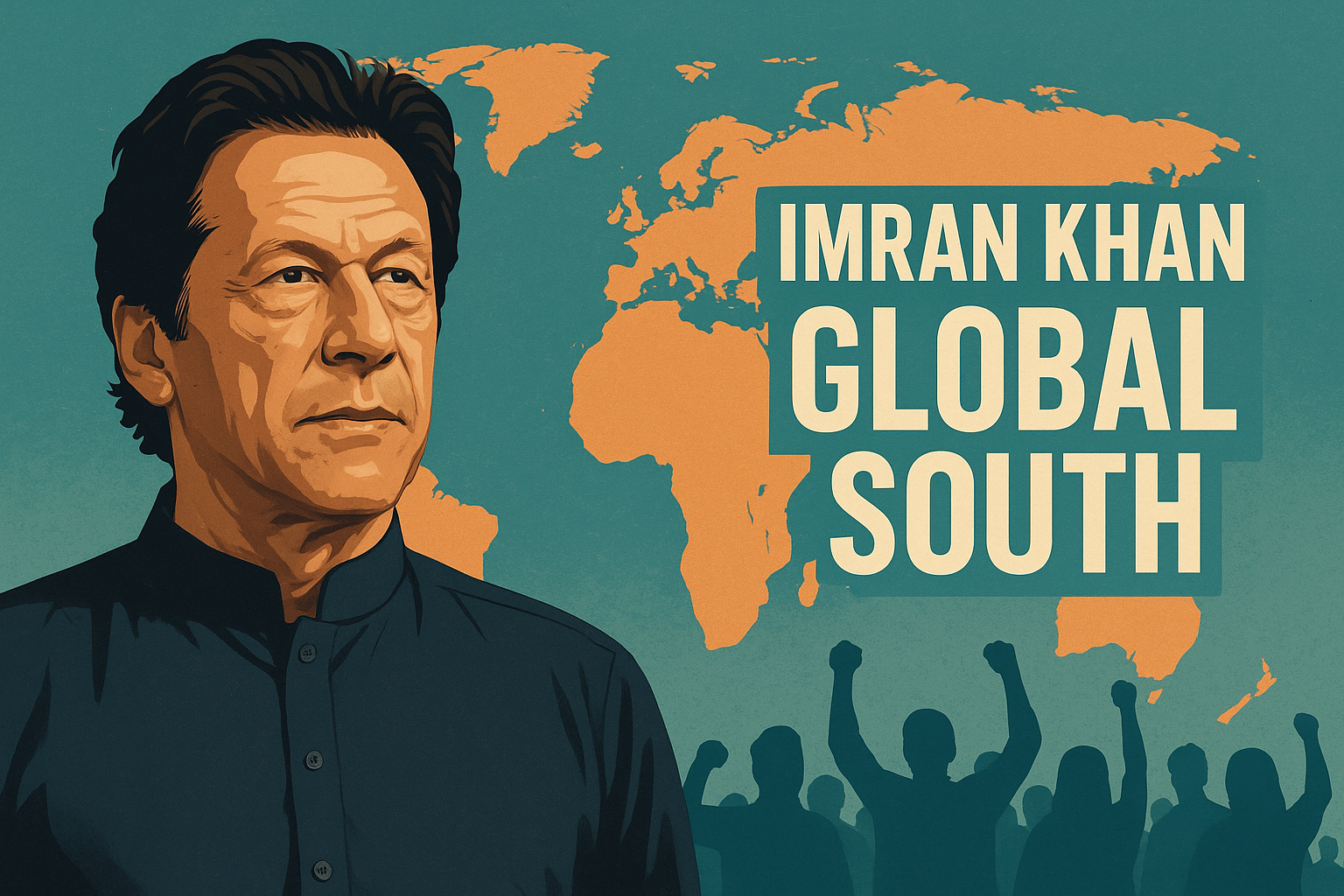The Leader
Imran Khan is a prominent Pakistani leader who has made a lasting impact in both sports and politics. Born on October 5, 1952, he first rose to fame as an international cricketer. As captain of the Pakistan national cricket team, he led the country to its historic World Cup victory in 1992. His leadership on the field was marked by determination, confidence, and an unshakable belief in his team’s potential.
After retiring from cricket, Imran Khan dedicated himself to public service. He founded the Shaukat Khanum Cancer Hospital, Pakistan’s first charity-based cancer hospital, and later established Namal University to provide quality education to underprivileged students. These initiatives reflected his deep commitment to the welfare of the people.
In 1996, he entered politics by founding his own party, Pakistan Tehreek-e-Insaf (PTI), with a vision of creating a just and corruption-free society. After years of perseverance, he gained widespread support, especially among the youth. In 2018, he became the 22nd Prime Minister of Pakistan. As a leader, he focused on promoting social welfare programs, encouraging self-reliance, and pursuing an independent foreign policy.
Imran Khan’s journey from a sports icon to a national leader is a story of charisma, resilience, dedication, and service. His leadership continues to inspire millions across Pakistan and beyond.


Imran Khan as a Leader of the Muslim World
Imran Khan, former Prime Minister of Pakistan and renowned cricketer-turned-politician, has emerged as one of the most influential figures in the contemporary Muslim world. His leadership style, vocal advocacy for Muslim causes, and efforts to reshape Pakistan’s image globally have placed him in the spotlight not just as a national leader, but as a symbol of a modern Islamic statesman, and his role as a voice for Muslim unity and dignity is widely acknowledged.
Imran Khan rose to fame as the captain who led Pakistan to its first Cricket World Cup victory in 1992. His transition from sports to philanthropy, and later to politics, was marked by determination and idealism. After founding the Pakistan Tehreek-e-Insaf (PTI) in 1996, Khan spent over two decades building his political base before eventually being elected Prime Minister in 2018. His campaign was rooted in anti-corruption, Islamic welfare principles, and a promise to create a “Naya Pakistan” (New Pakistan).
One of the defining features of Imran Khan’s tenure was his consistent advocacy for Muslim issues on global platforms. He spoke out against Islamophobia in Western countries, most notably during his speech at the United Nations General Assembly in 2019. Khan called for international recognition of the growing anti-Muslim sentiment, particularly in the wake of events such as the Christchurch Mosque shootings in New Zealand. He emphasized the need for respect for Islamic values and warned against associating terrorism with Islam.
Imran Khan has been a vocal supporter of the oppressed Muslim communities around the world, particularly in Kashmir and Palestine. His government strongly condemned India’s revocation of Article 370 in Jammu & Kashmir in 2019, labeling it a violation of international law and human rights. He consistently called for global intervention to stop the suffering of Kashmiris.
Similarly, Khan expressed unwavering solidarity with the Palestinian people. His administration condemned Israeli aggression in Gaza and advocated for a two-state solution in line with UN resolutions. His clear and principled stance on these matters gained him respect across the Muslim world.
Domestically, Imran Khan often referred to the Riyasat-e-Madina model — the Islamic welfare state established by Prophet Muhammad (PBUH) — as his inspiration. His policies aimed to uplift the poor, improve healthcare and education, and promote justice and accountability. This vision of Imran Khan resonates globally with Muslims seeking leaders who can combine Islamic values with modern governance.
Imran Khan’s image in the Muslim world is that of a leader who dared to speak against global injustices, challenged Islamophobia, and promoted a dignified representation of Muslims. While his political journey within Pakistan is still unfolding, his international impact — especially as a vocal, unapologetic Muslim leader — cannot be denied. He inspired a generation of Muslims to believe in the possibility of ethical, principled leadership rooted in Islamic values.
Imran Khan’s role as a spokesperson for Muslim dignity and unity has earned him a lasting place in the hearts of Muslims across the world. His boldness in confronting global powers, his defense of Islamic values, and his vision of justice and welfare reflect a type of leadership many Muslims yearn for in today’s complex world.

Imran Khan: A Natural Leader of the Global South
Imran Khan stands out as one of the few contemporary leaders from the Global South who commands both moral authority and global resonance. His journey—from a celebrated sports icon to a reformist statesman—has evolved into a larger narrative of resistance against global inequities and neo-colonial structures that continue to marginalize developing nations.
As Prime Minister of Pakistan, Khan consistently framed his country’s struggles within the broader experience of the Global South—exposing Western double standards on issues like climate justice, Islamophobia, and debt dependency. His speeches at the United Nations and global forums reflected an unapologetic voice that challenged the world’s power hierarchies, urging recognition of shared humanity over geopolitical interests.
Khan’s call for climate justice and sustainable development resonated deeply after Pakistan’s devastating floods, where he highlighted the paradox of poor nations bearing the brunt of emissions they did not cause. He also championed economic equity, advocating for debt restructuring and fair trade terms to liberate developing economies from perpetual financial servitude.
Equally, his leadership in confronting Islamophobia and global discrimination positioned him as a moral advocate for dignity and coexistence. Whether addressing the plight of Kashmiris, Palestinians, or marginalized Muslim communities, Khan has consistently linked these struggles to the broader pursuit of justice for the Global South.
Despite navigating immense domestic challenges and political opposition, Khan’s enduring appeal across borders stems from his authenticity and his refusal to conform to Western-dictated narratives. His leadership embodies the aspirations of billions across Asia, Africa, and Latin America who seek a more just global order—one built on equality, sovereignty, and self-determination.
If the Global South is to reassert its collective strength in this new multipolar era, Imran Khan represents a natural catalyst for that movement—a unifying voice capable of transforming shared grievances into a coherent vision for global fairness and solidarity.